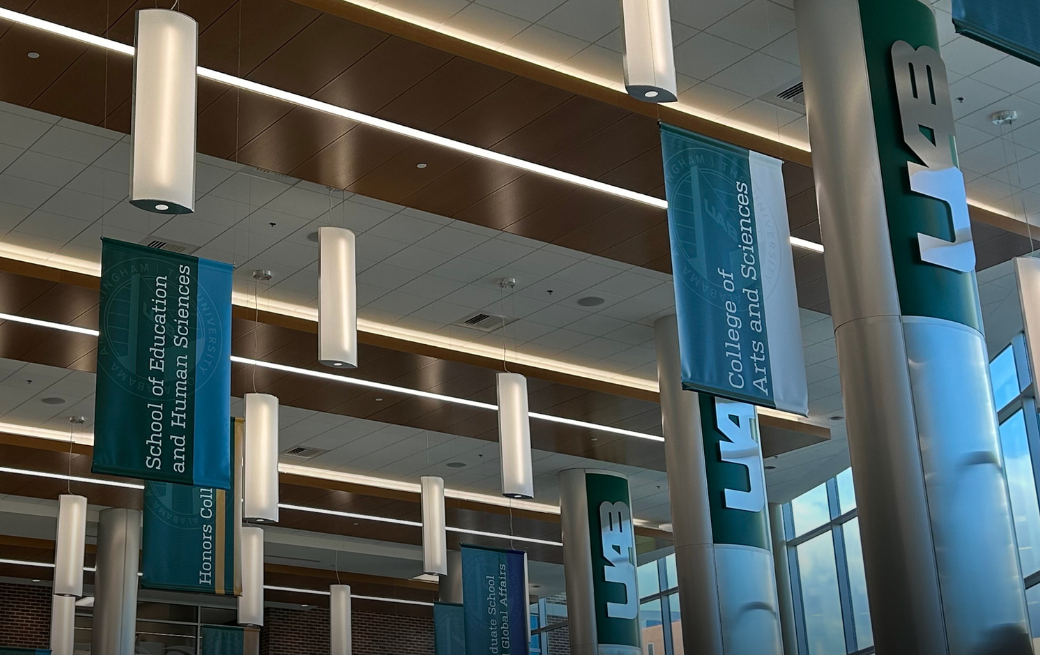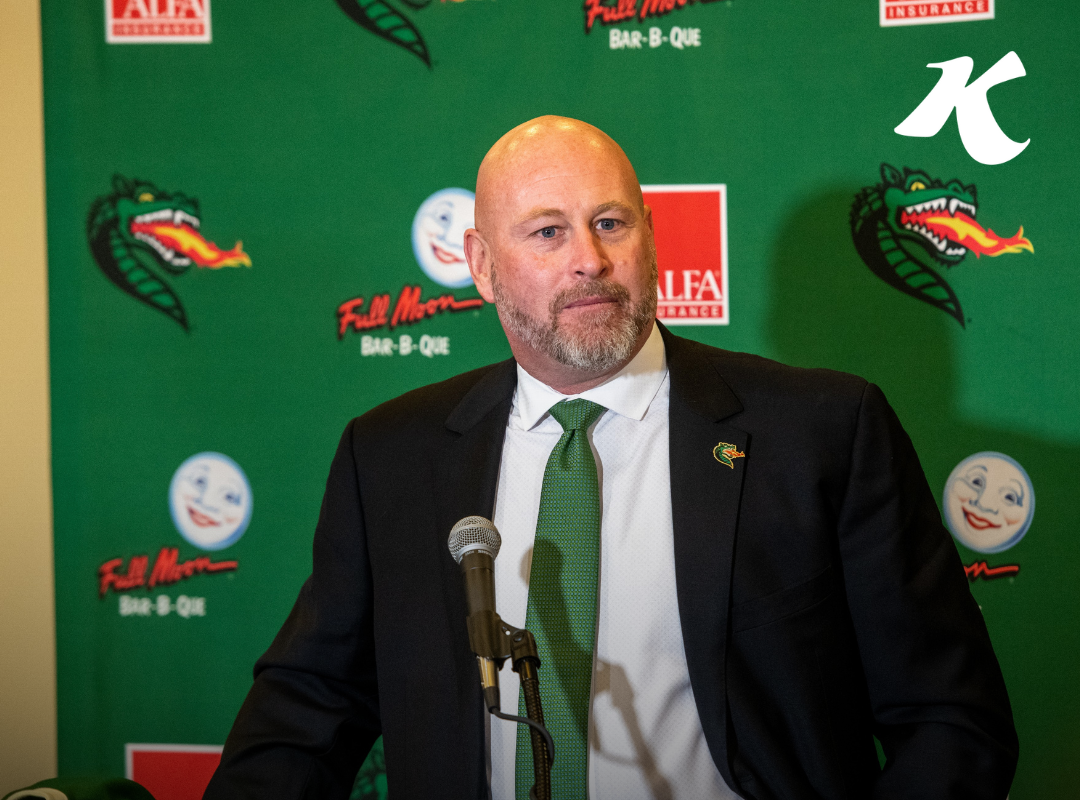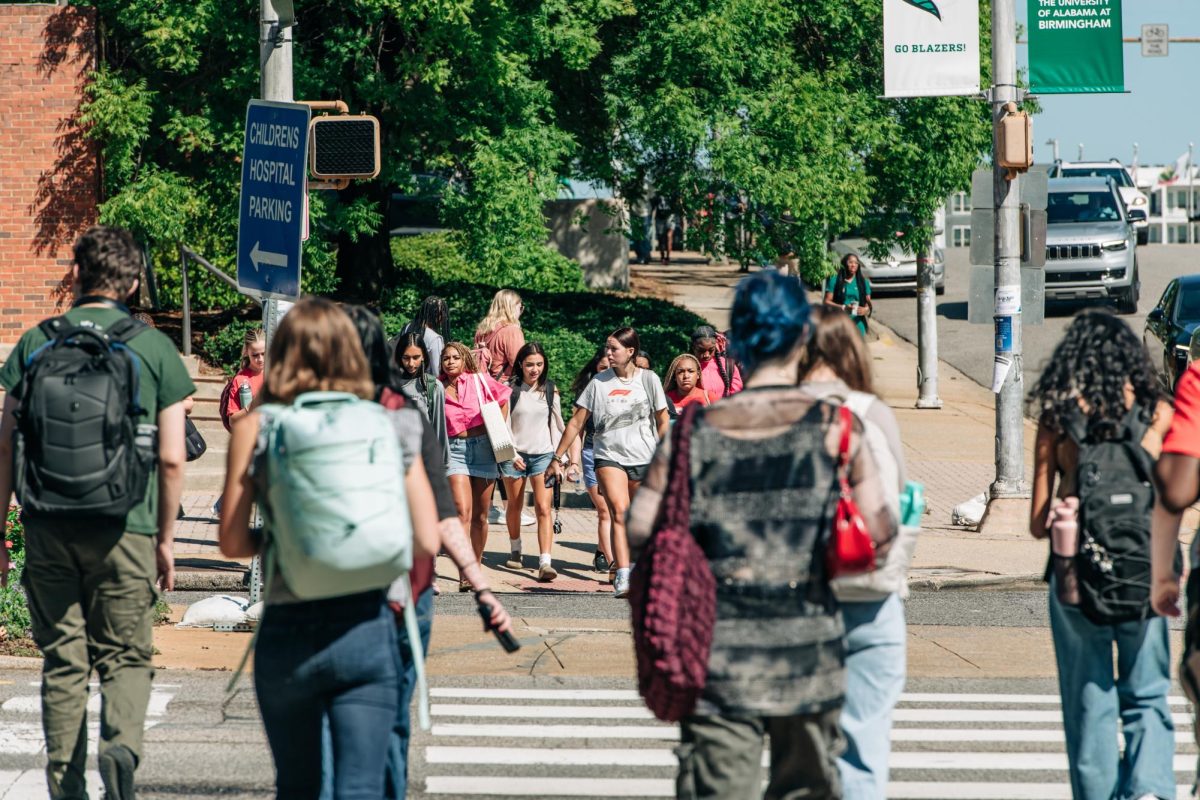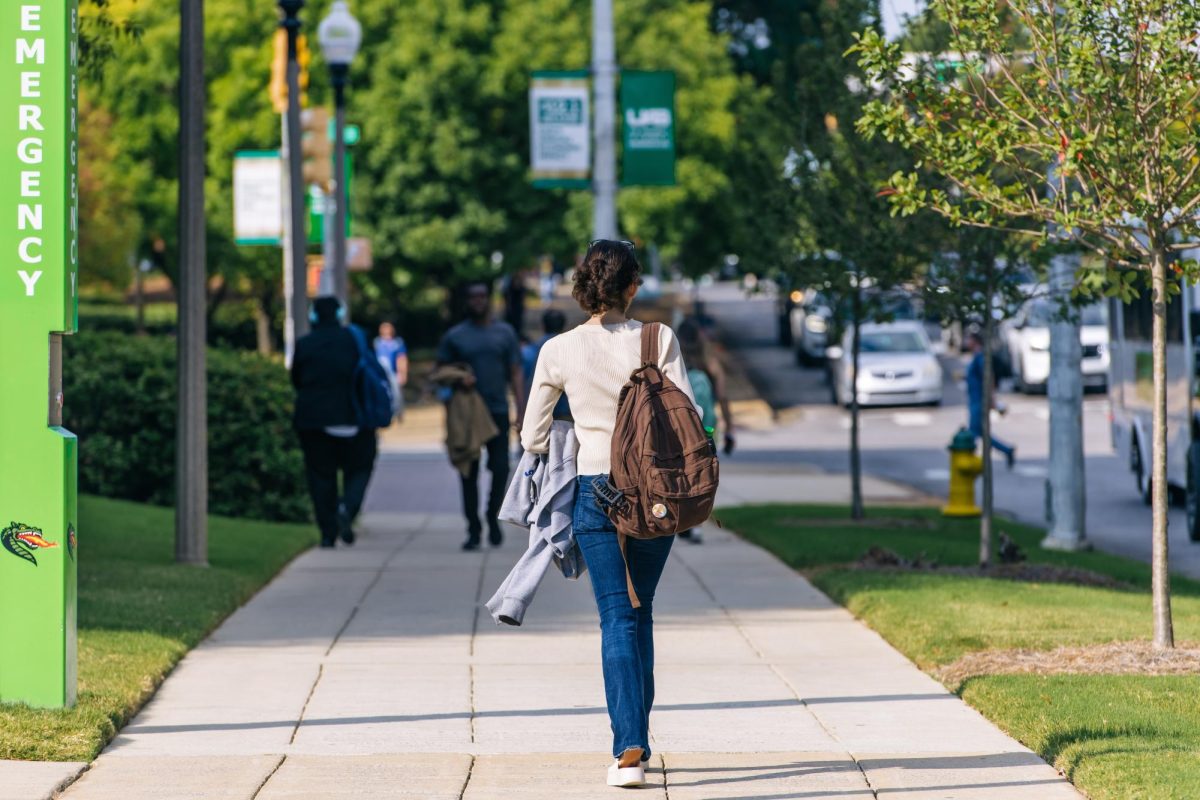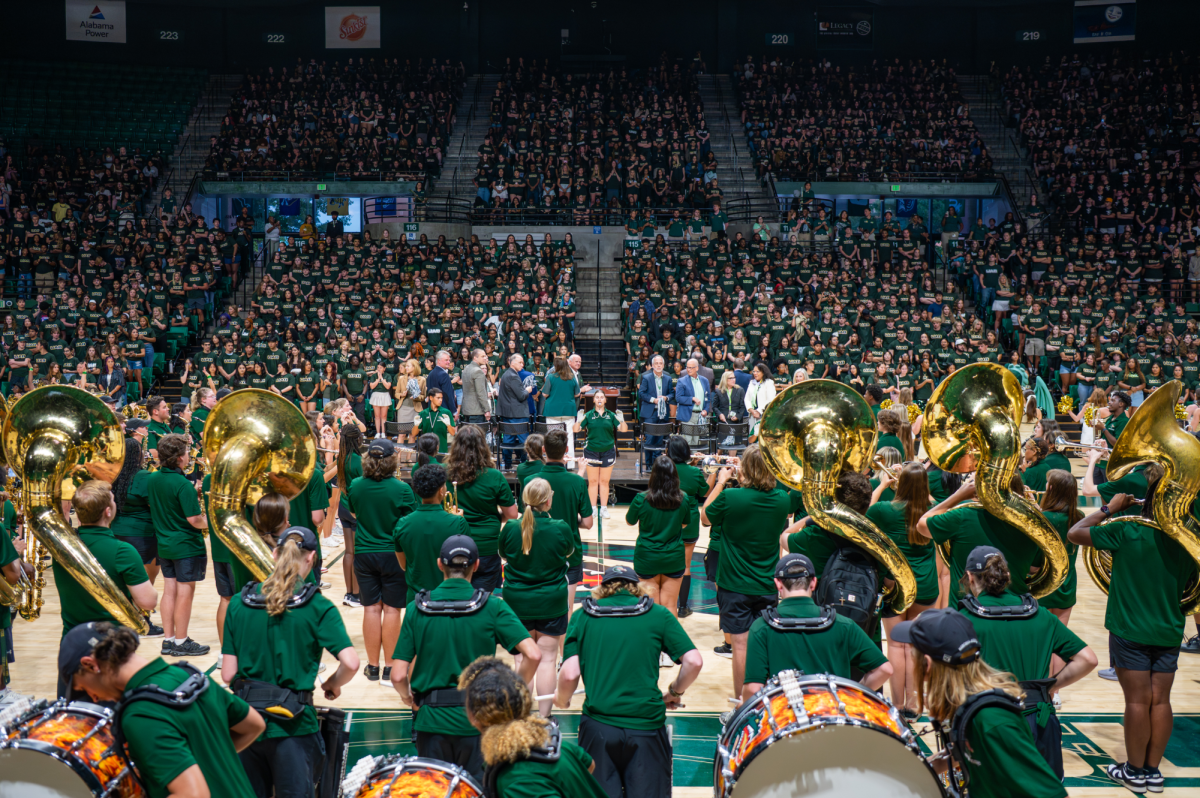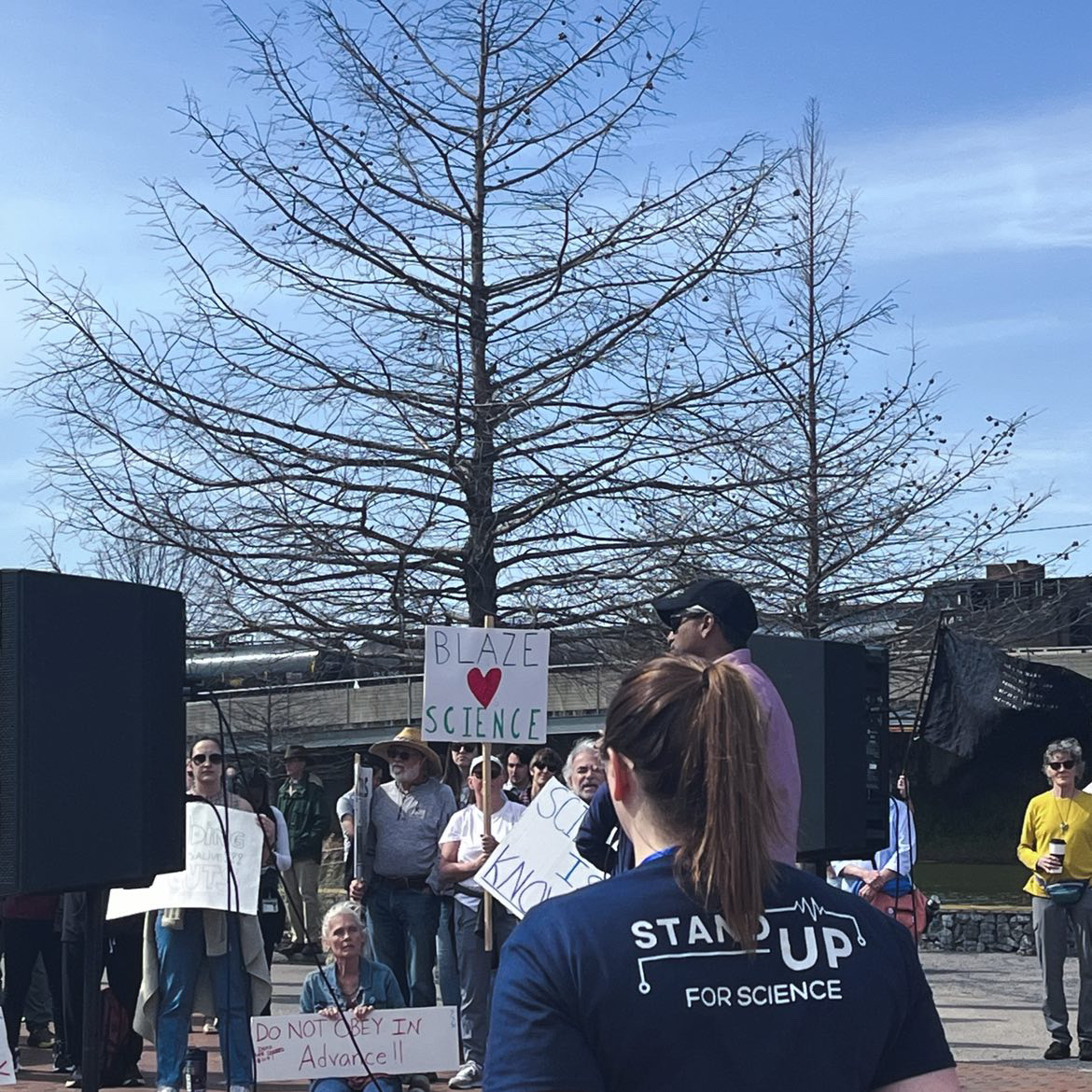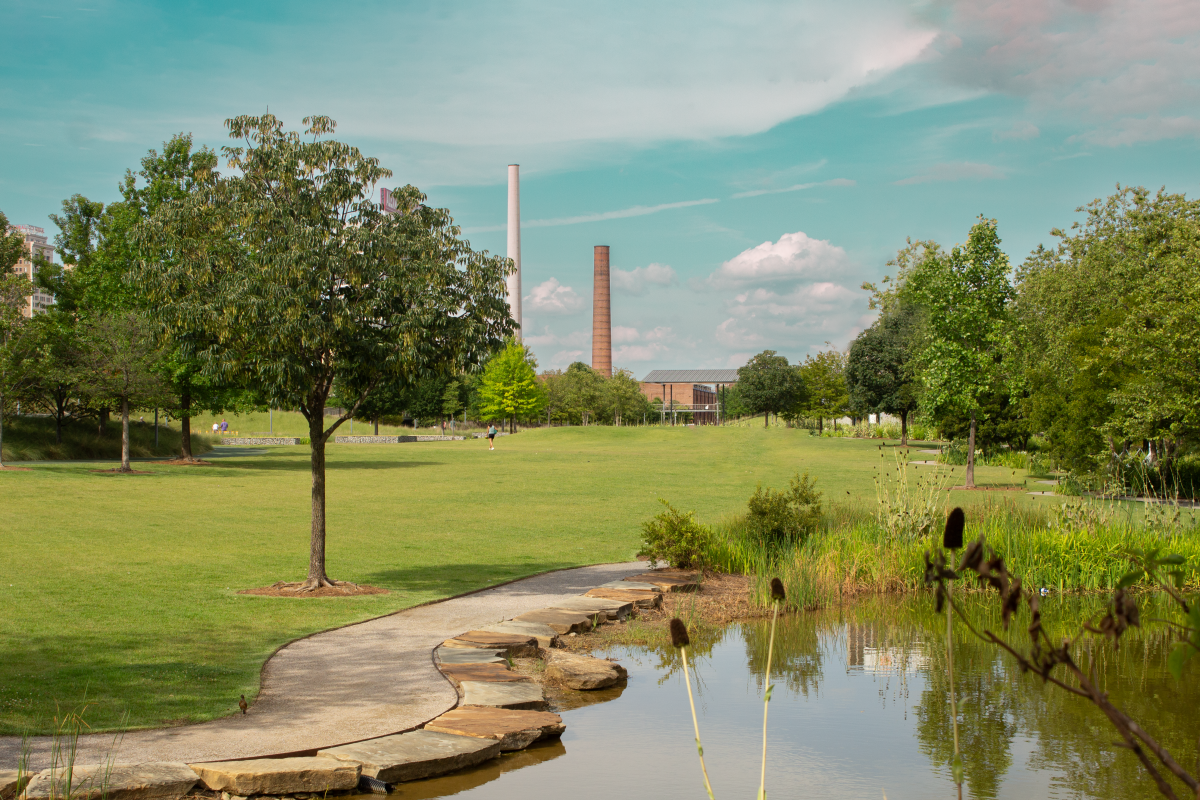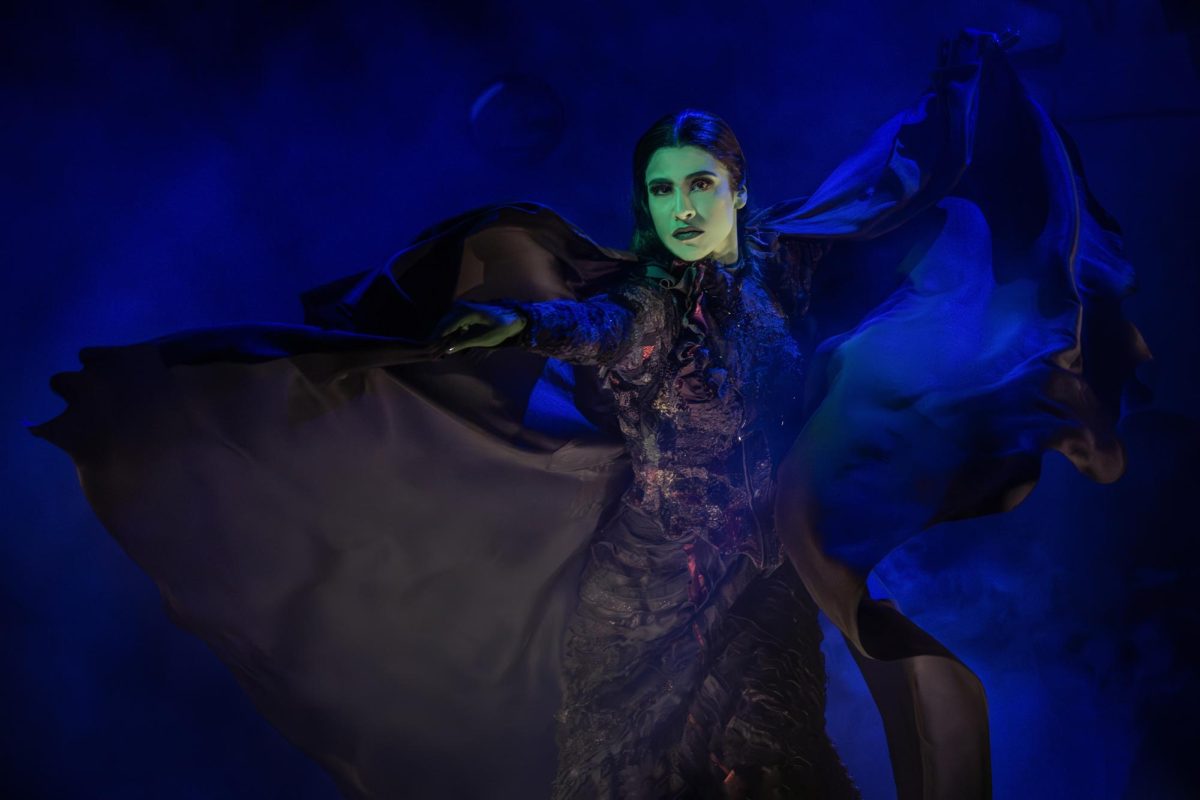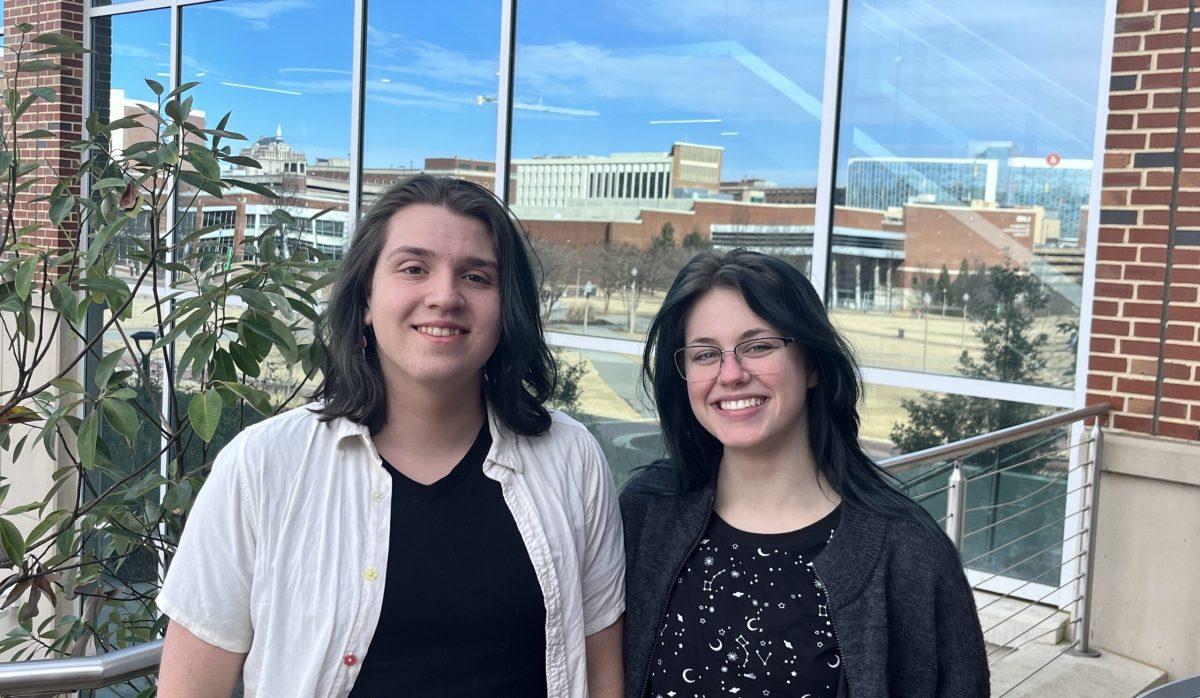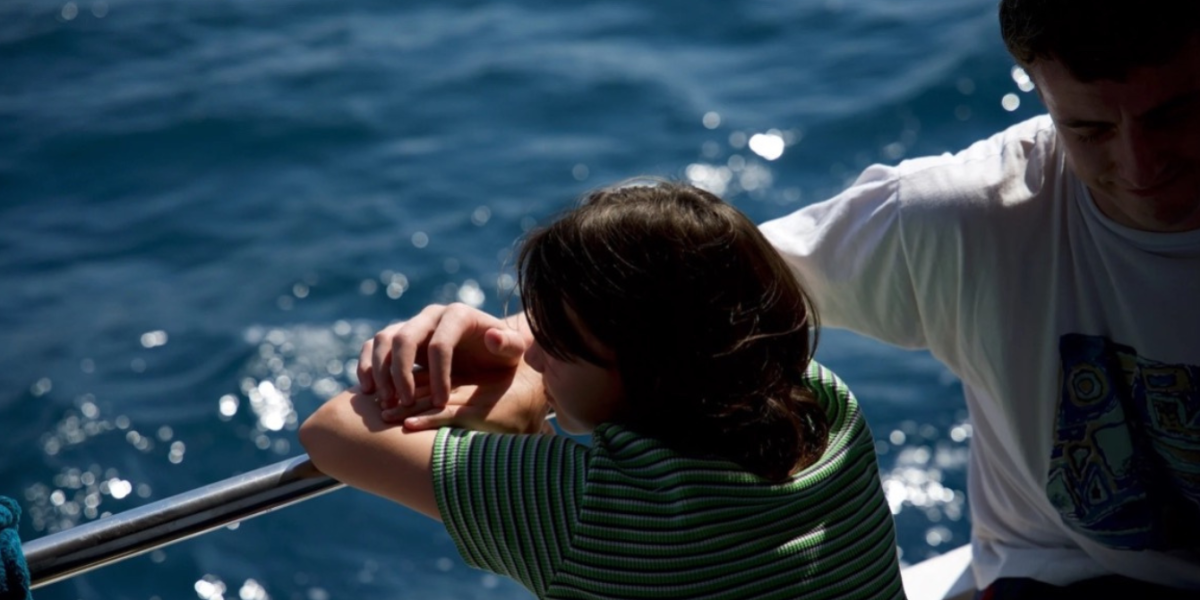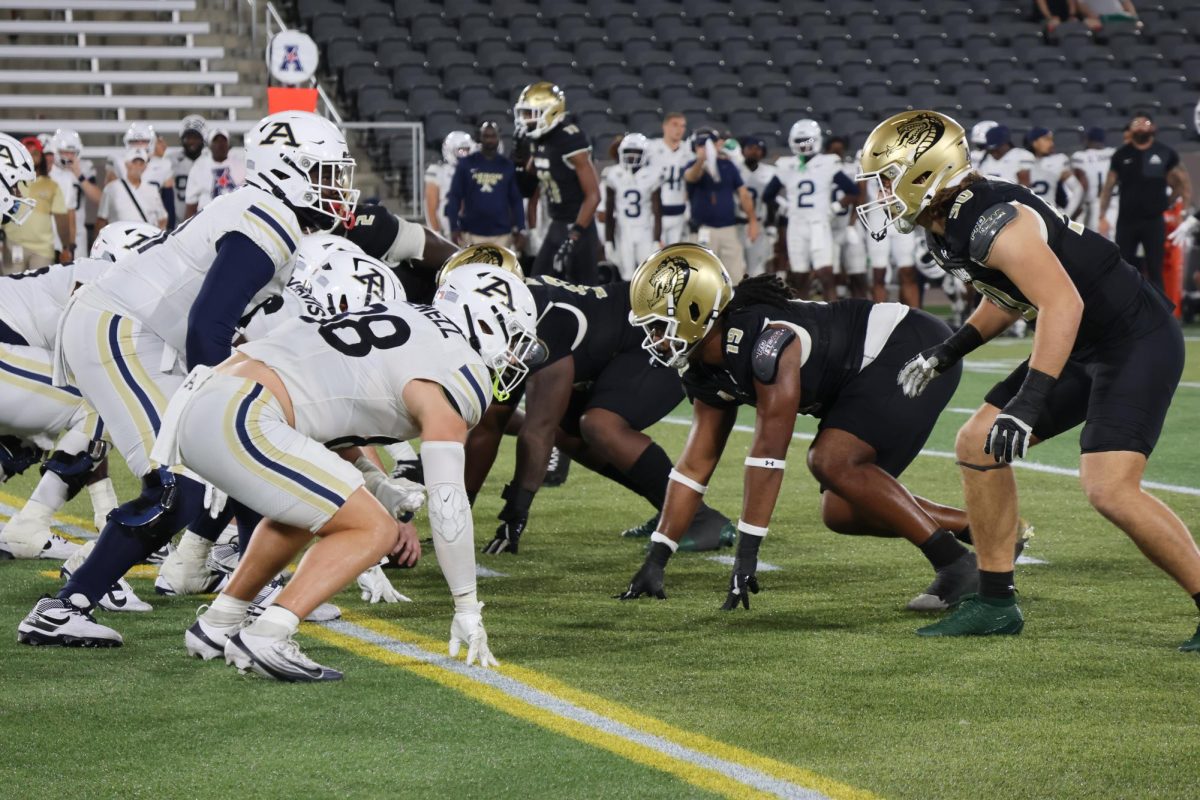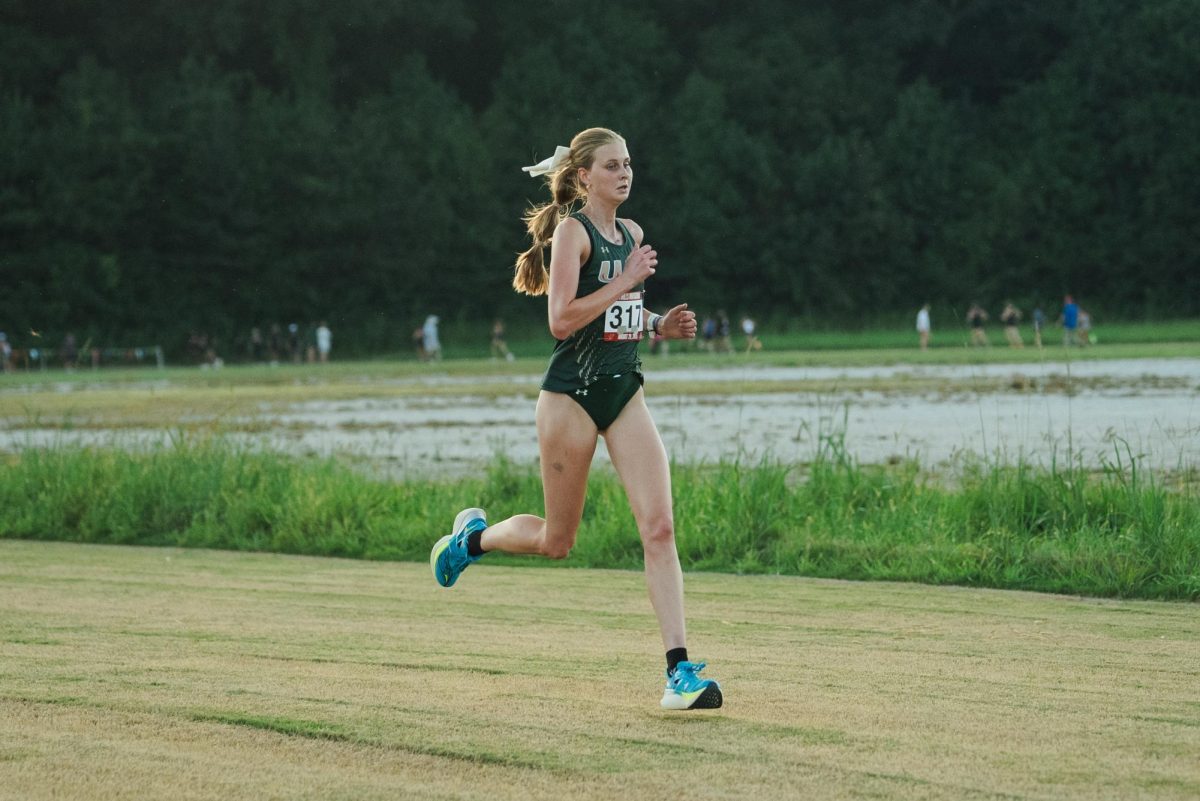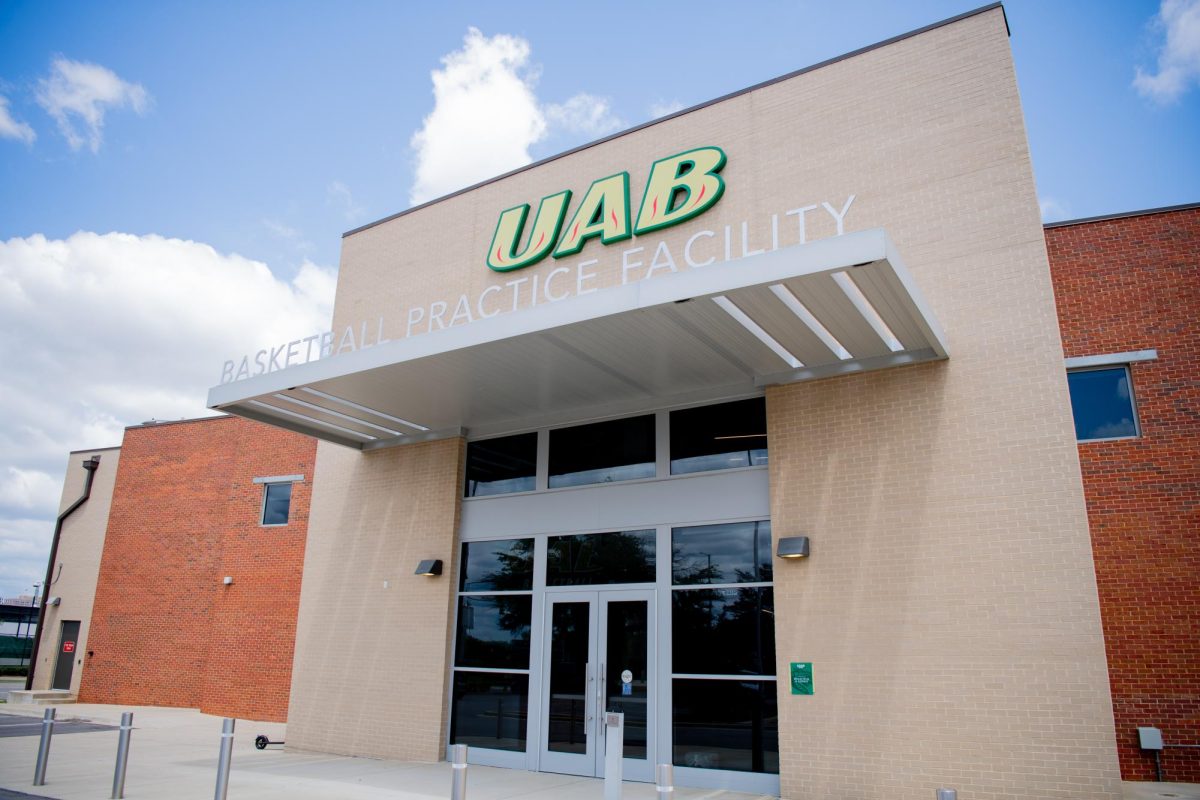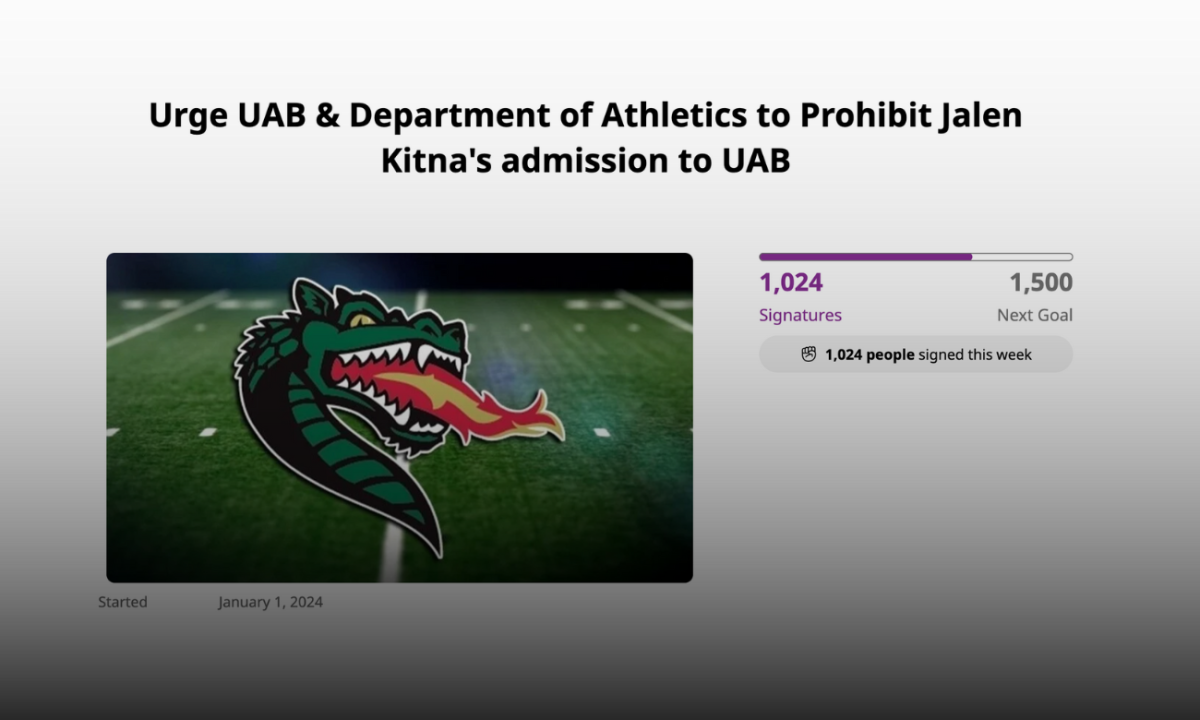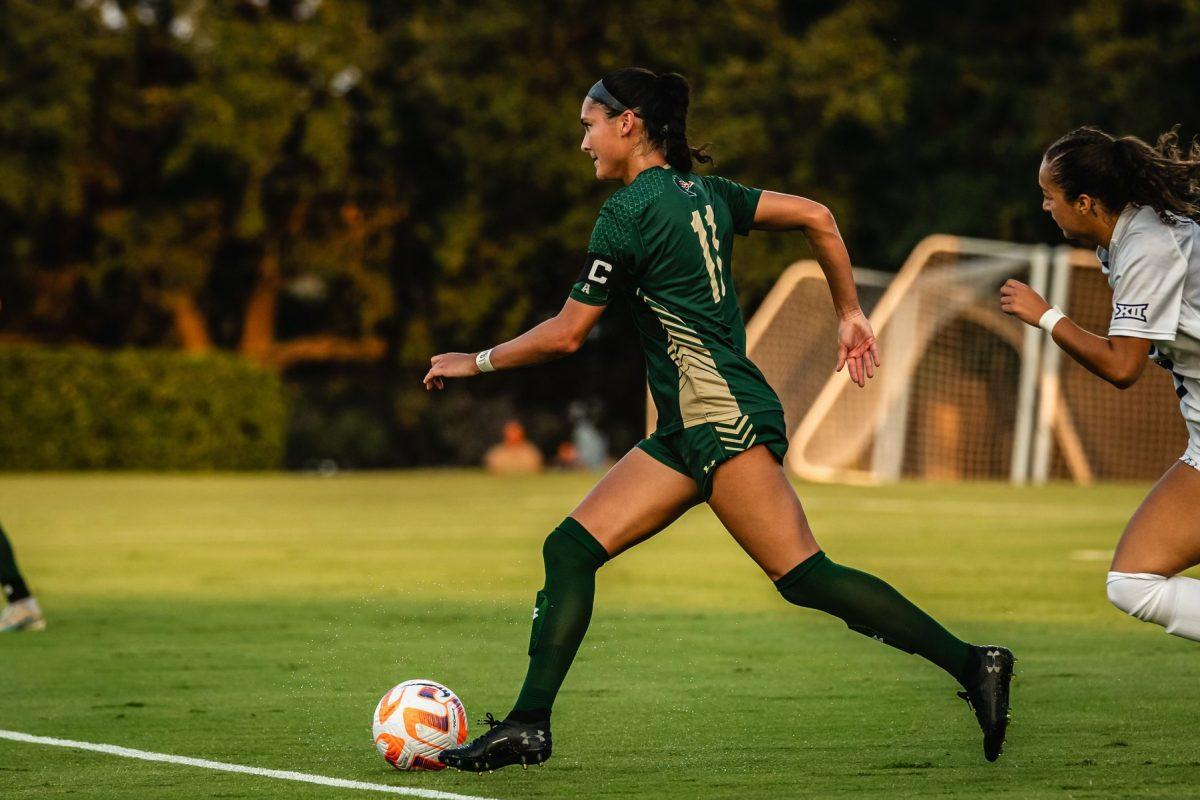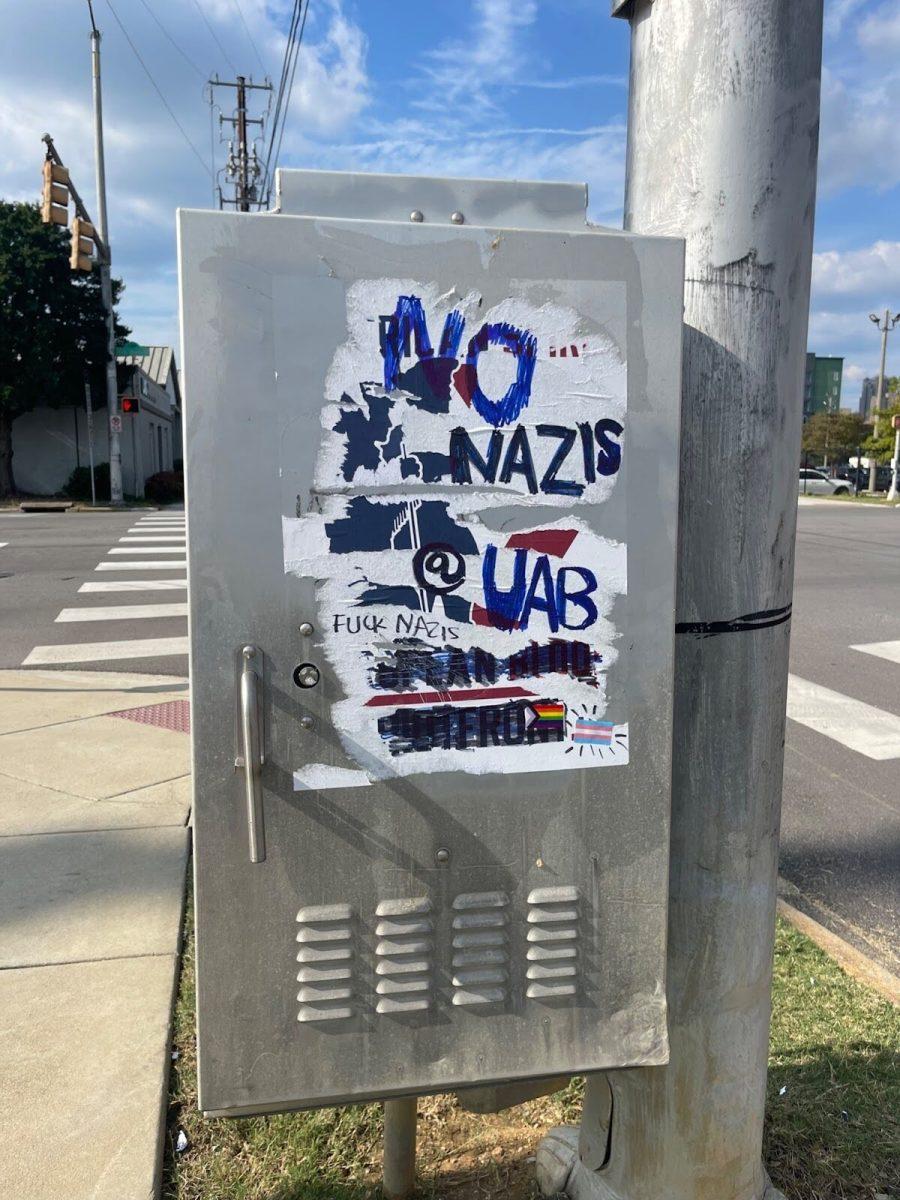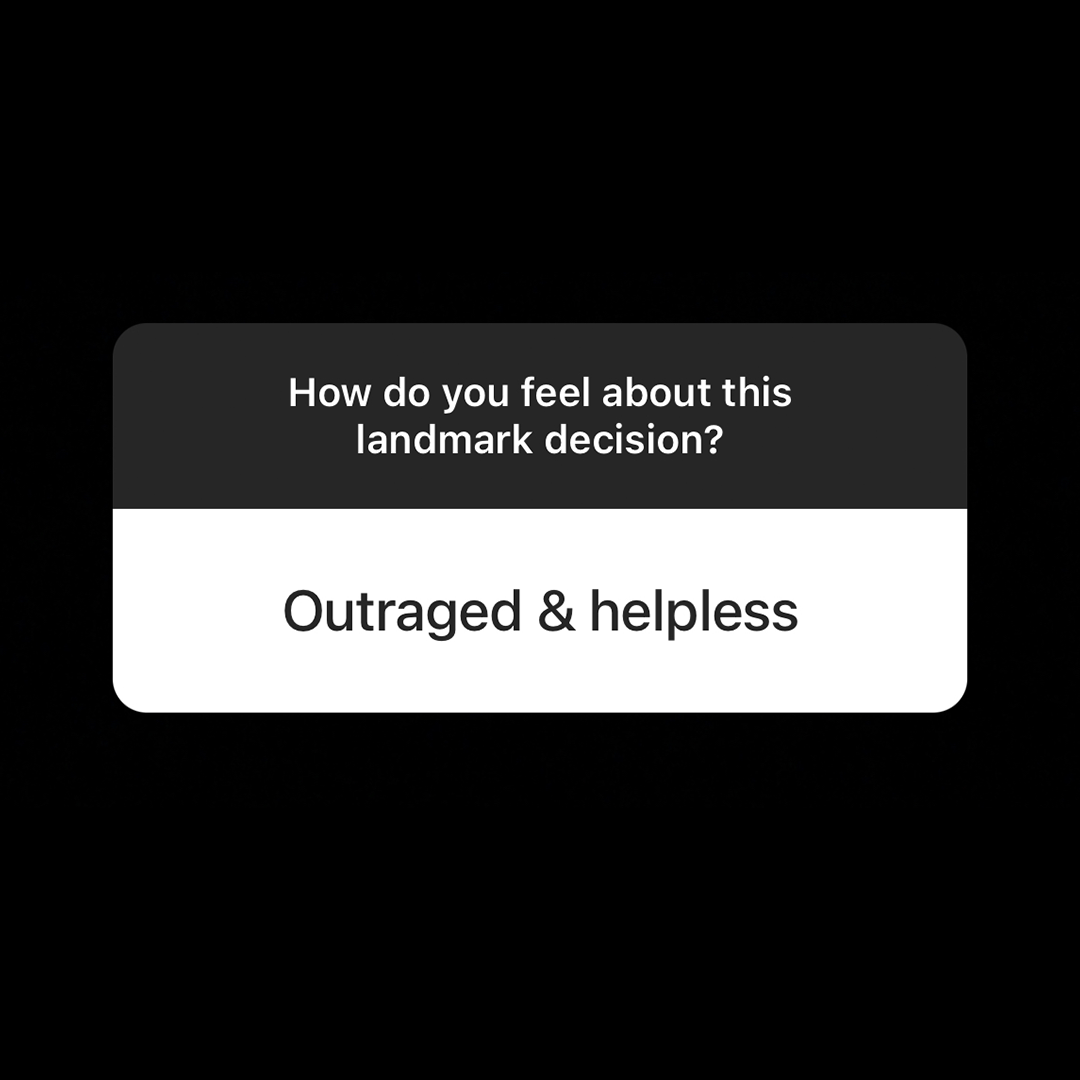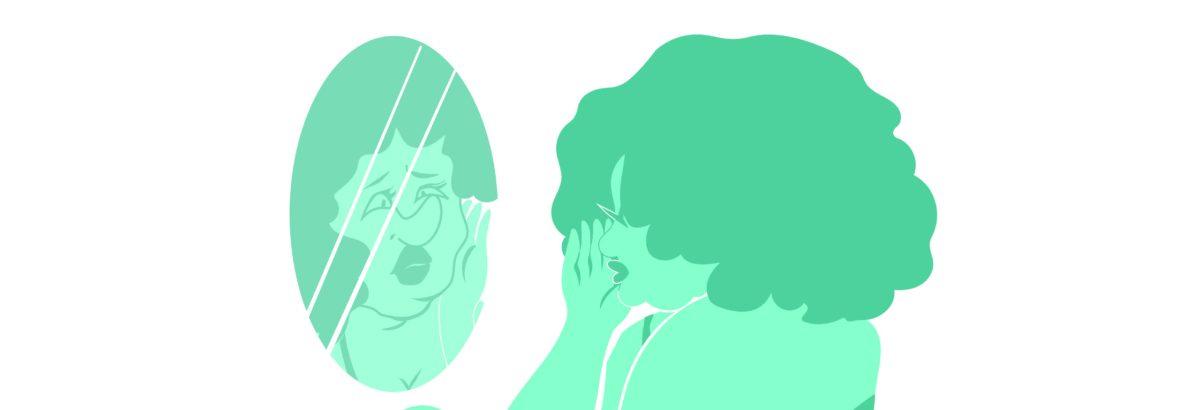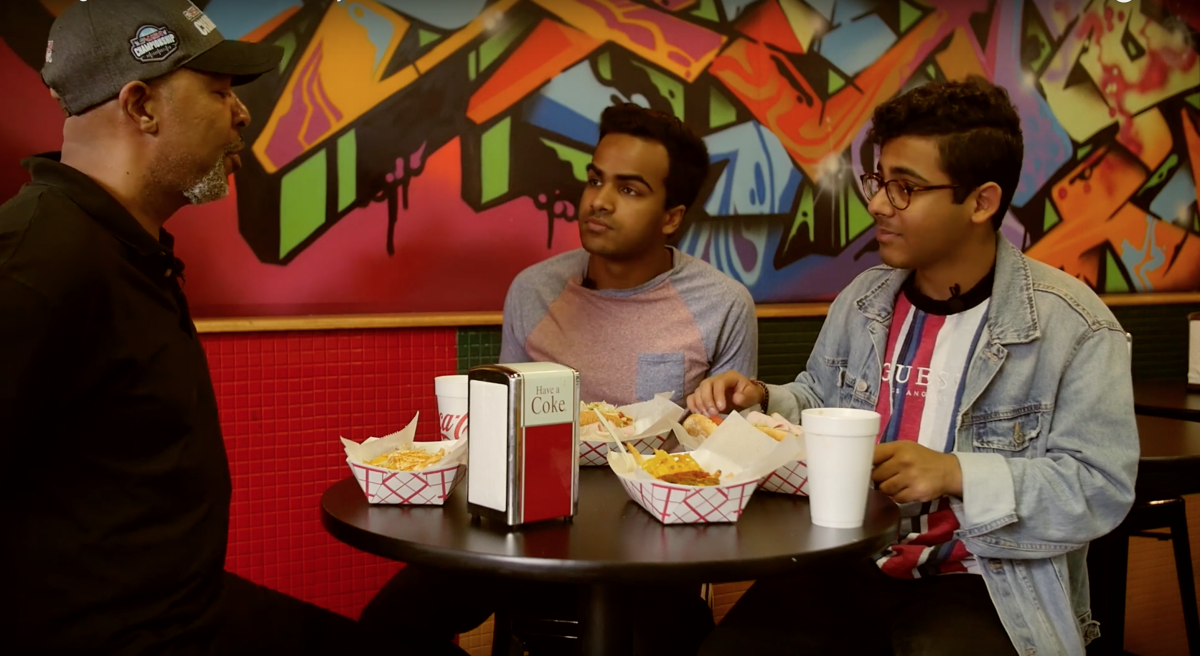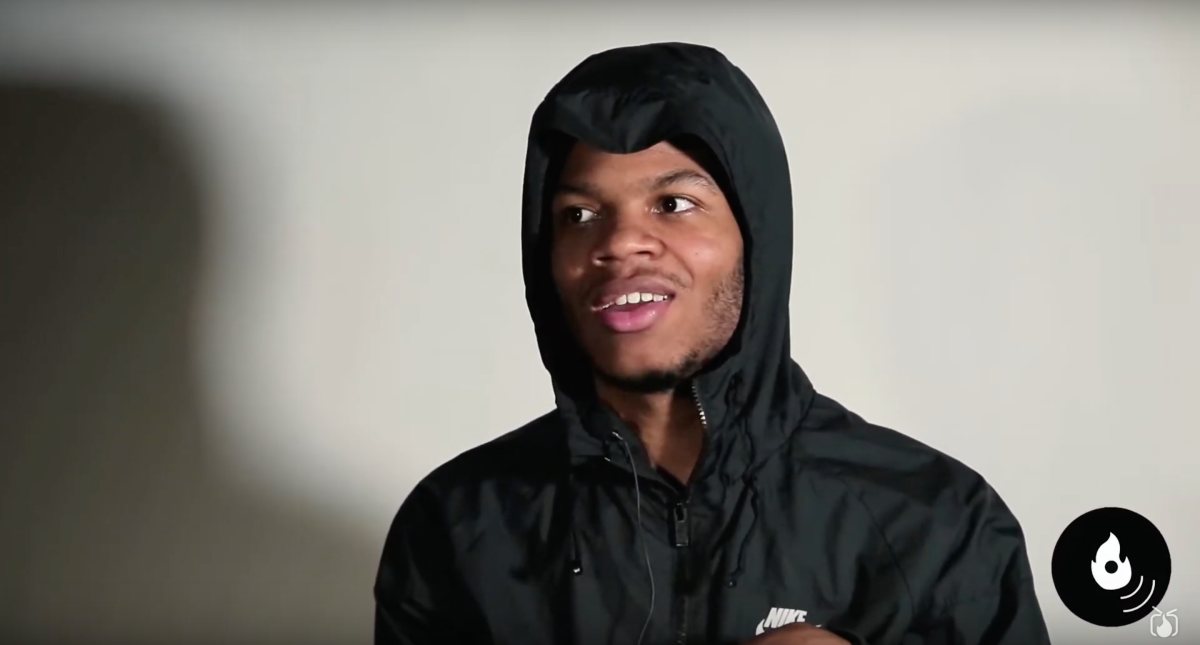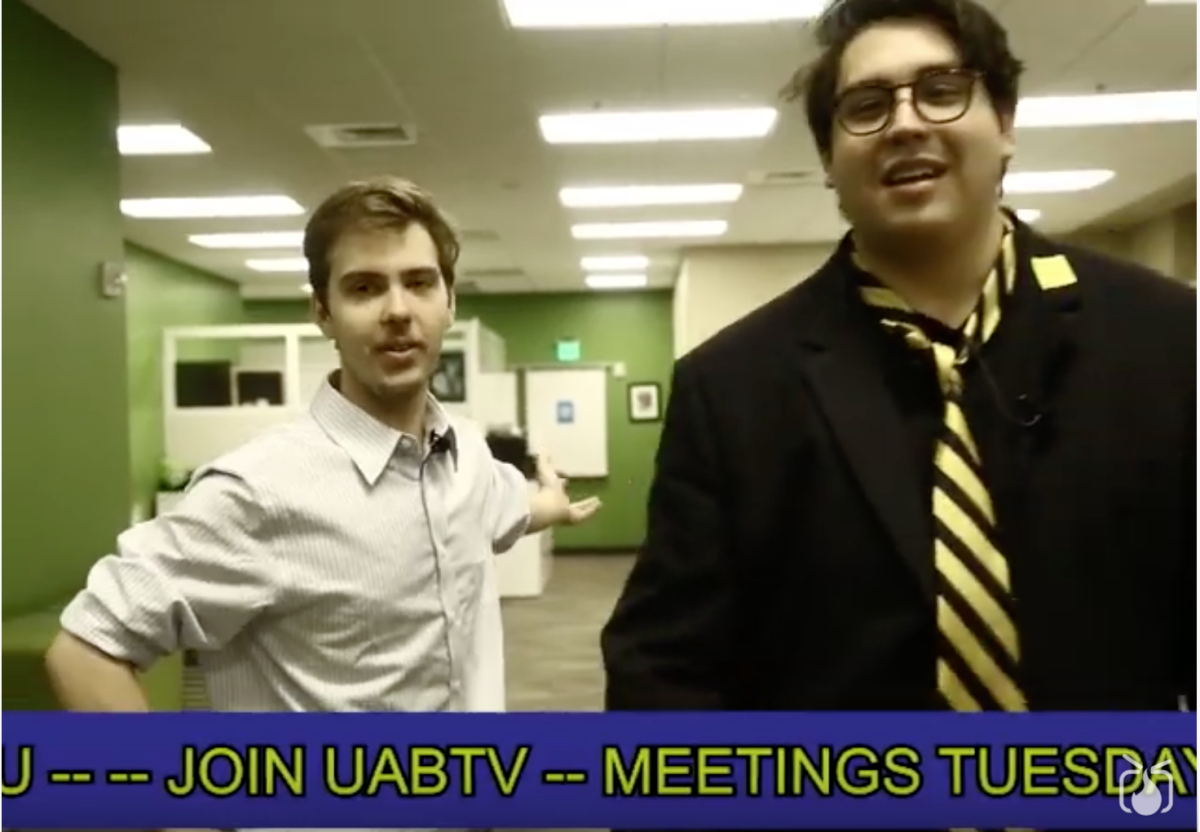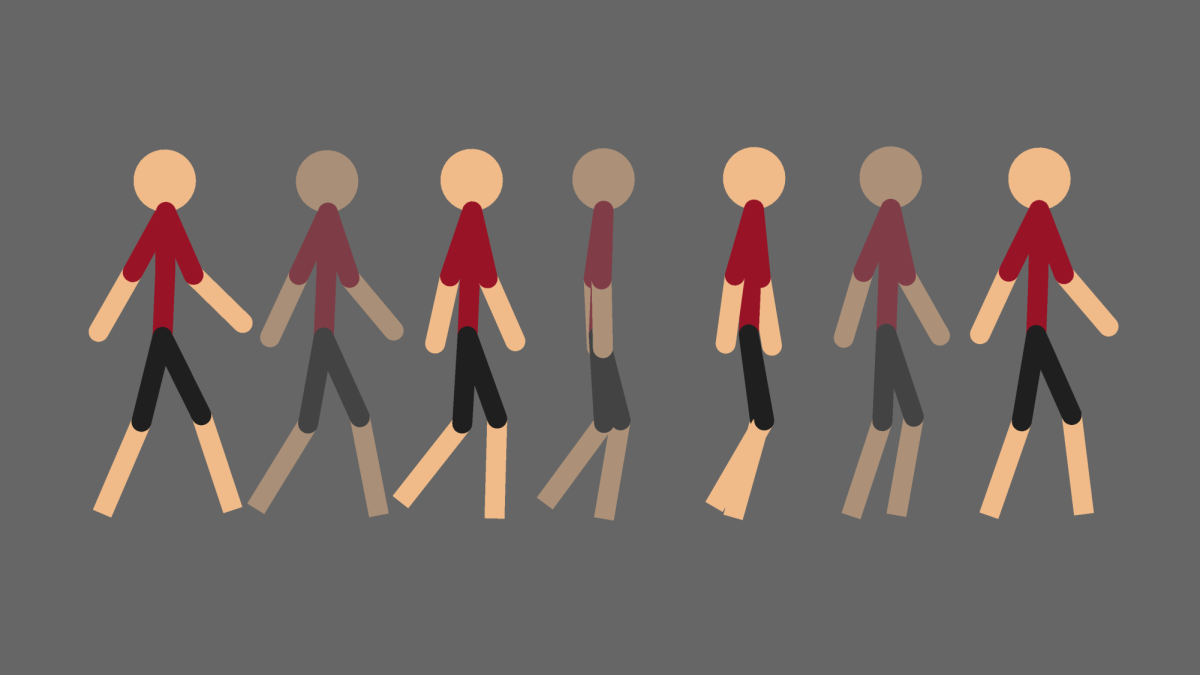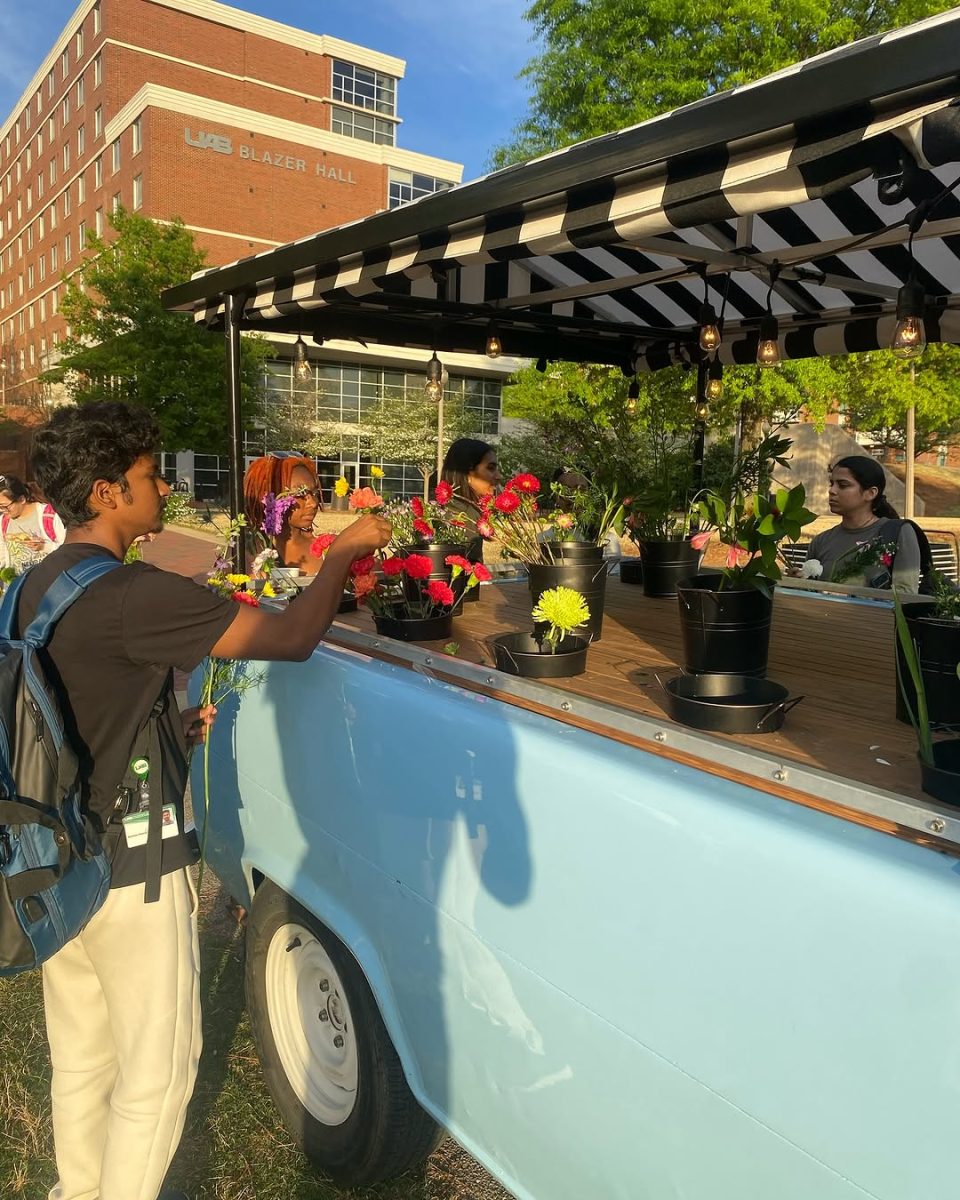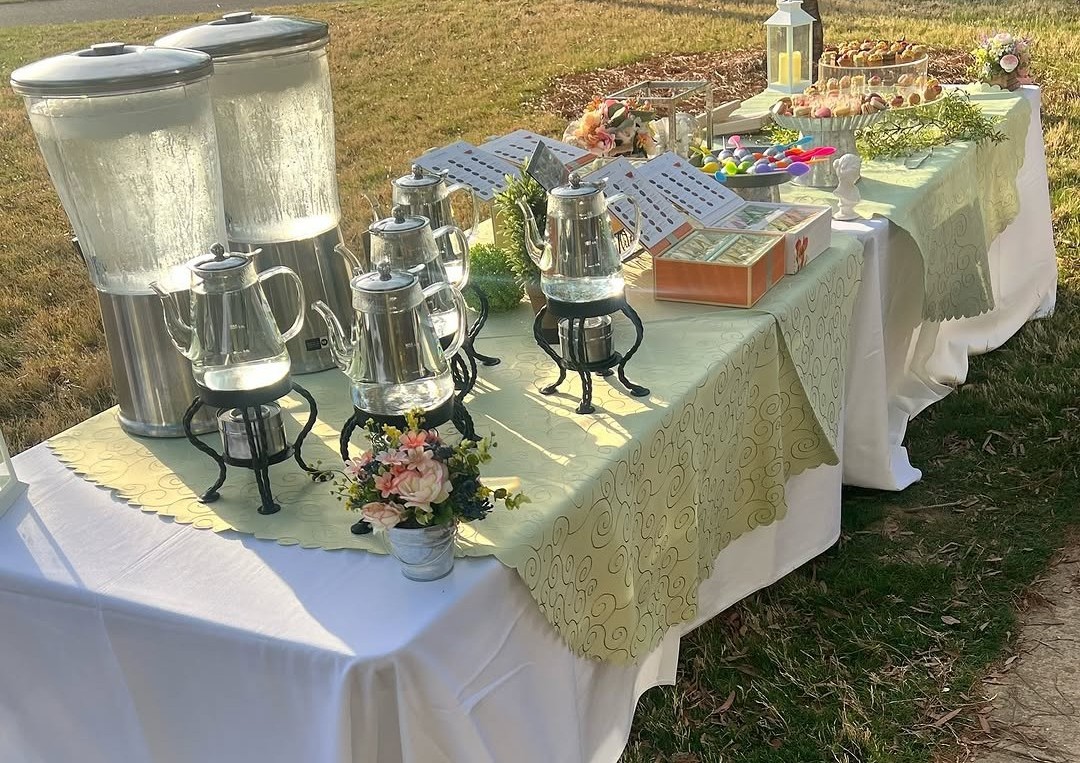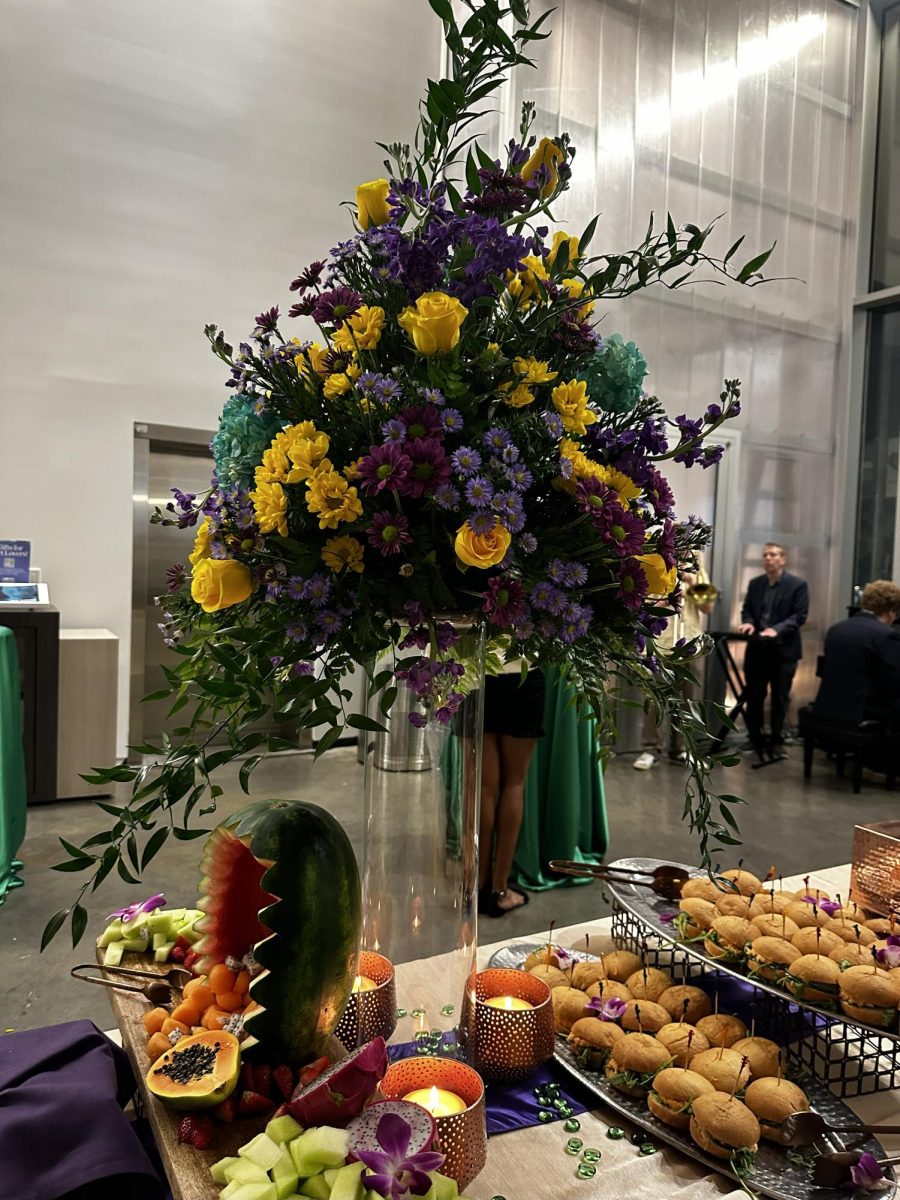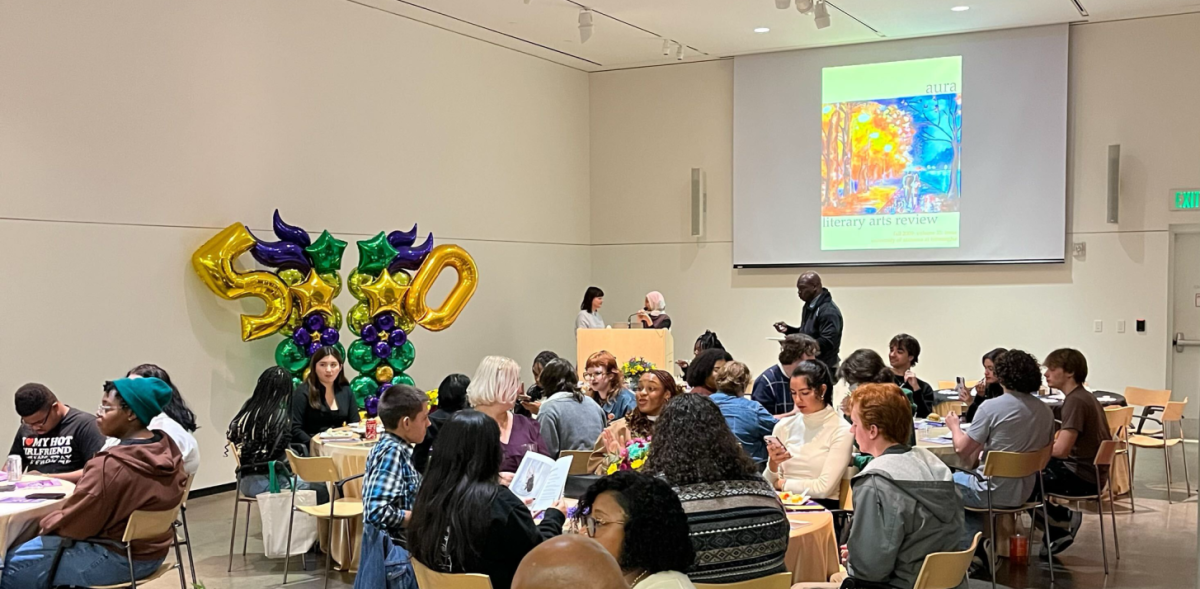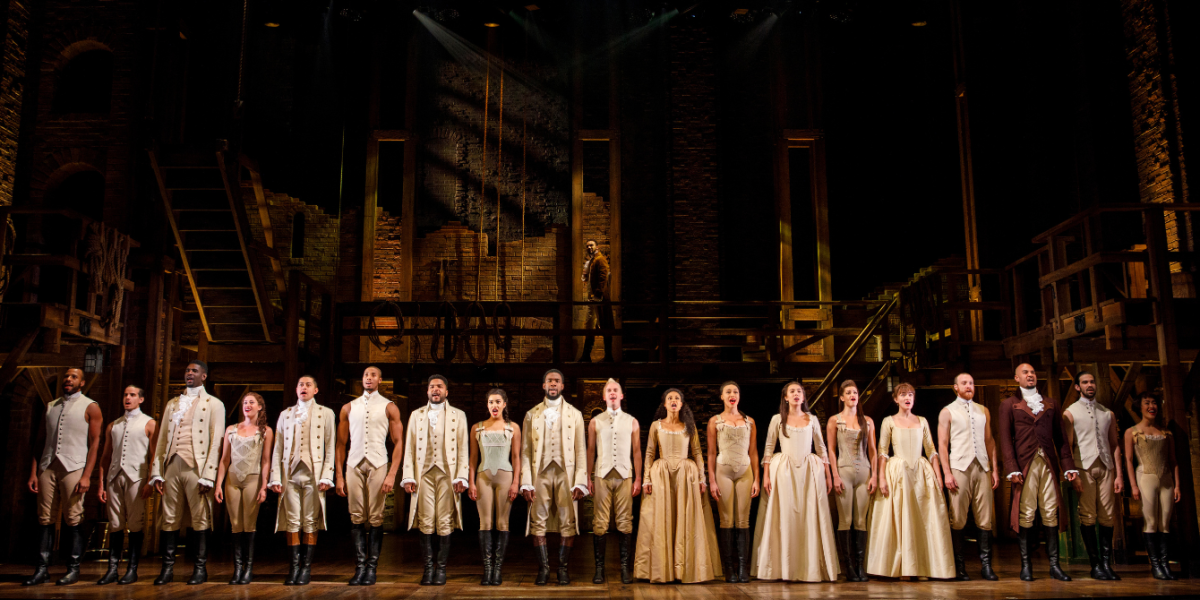Natasha Mehra – Staff Writer
[email protected]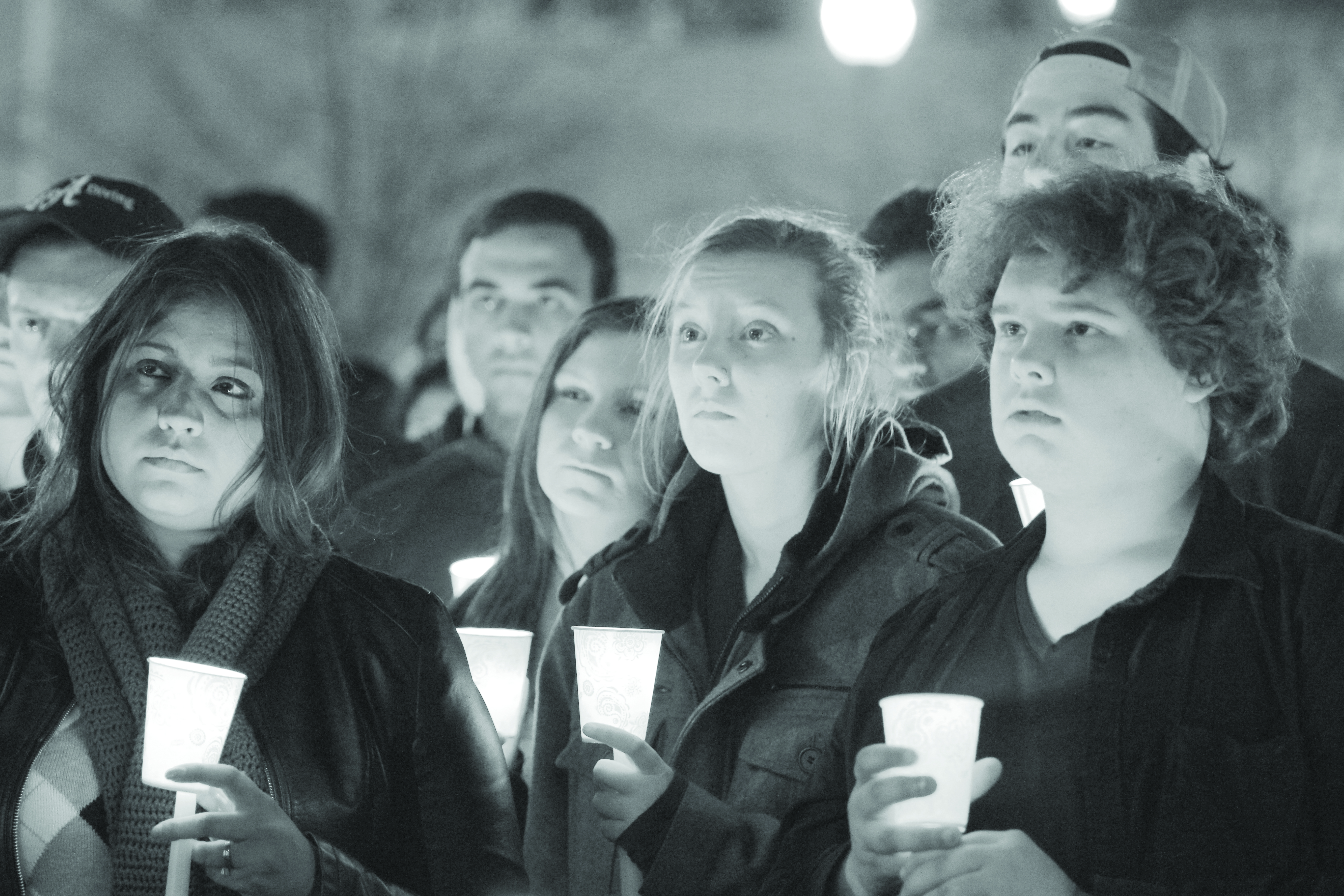 Students group together by candlelight to remember the murder victims in North Carolina (Photo by Tianjiao Zhang).
Students group together by candlelight to remember the murder victims in North Carolina (Photo by Tianjiao Zhang).
On Wednesday Feb. 11, three Muslim students near the University of North Carolina at Chapel Hill were shot and killed.
UAB students held a candlelight vigil to show support on Thursday, Feb. 12. The Muslim Student Association (MSA) organized the event. Their goal was to raise awareness and bring attention to the three students that were shot and killed: Deah Shaddy Barakat, Yusor Mohammad, and Razan Mohammad Abu-Salha. The group began with a prayer for the three victims and then passed out candles to all attendees.
Both former MSA President Hazim Muhammad and current MSA President Abdullah Shaheen spoke at the vigil, thanking everyone for coming out and promoting understanding between people of different religions. They also spoke about how the three youths killed were actively involved in their communities and how the belief in giving back to the community is a motif in Islam.
“We are deeply saddened by the deaths of these three Muslim students at UNC. This vigil was about raising awareness for this tragedy and we hope to continue the dialogue between Muslims and non Muslims at UAB and in Birmingham, and that was started tonight,” said Shaheen.
Students of all backgrounds came out to promote peace and were willing to share their opinions on the recent violence that has been related to race and religion.
“It has become more violent recently,” said Ethan Coleman, referring to the protests that began in Ferguson, Mo. and New York and spread around the country after the deaths of unarmed black men who were killed by white police officers.
On the shootings of the students near UNC, Coleman is disappointed on its lack of coverage from the national media. “Unfortunately I’ve heard it more on social media than the actual news,” he said.
Rasib Khan believes that there is a disconnect between social media and the news in reporting these events as well. Many students were upset because they heard the facts of the killings on Twitter or Facebook rather than on CNN or Fox News, which seemed to pick up the story hours after it had broken on social media. “This is not about religion. It is based on humanitarian ground,” Khan said. “There’s a large gap between media and social media. To bridge the gaps, to make something to have your voice heard you must do something,” he said.
Student Mohammed Moughnieh believes that the media can be blamed for at least some of the “Islamaphobia” that exists in the United States.
“Media played a part in what happened. Especially with American Sniper that just came out. There were some racist undertones that inflamed some people’s passions against Muslims. Also the news media has as a whole helped in propagating a stereotype of Muslims as violent people,” he said.
The Muslim Student Association hopes to help clarify students’ view on Islam. The organization is hosting discussions among different religions as a part of Islamic Awareness Week, which will be from March 2-12. MSA plans to bring a preacher, a rabbi and an imam to help students learn about different religions.
Shaheen said it is their goal to help people highlight similarities rather than the differences. “We all have to live on this earth together whether anyone likes it or not, so we need to focus on our similarities, understand our differences, and live together as just people on this earth.”
